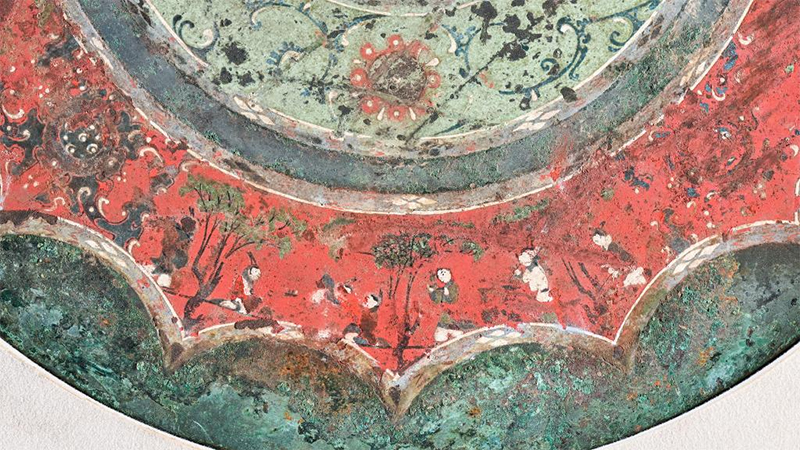Xi-Biden summit yields agreements on cooperation with Xi outlining pillars for ties
SAN FRANCISCO, Nov. 15 (Xinhua) -- Chinese President Xi Jinping and his U.S. counterpart, Joe Biden, agreed on several key areas of cooperation on Wednesday during a summit which both leaders perceived as a new starting point for stabilizing bilateral ties.
In their meeting at Filoli Estate, a country house approximately 40 km south of San Francisco, California, Xi also elaborated on key foundations for China-U.S. relations and urged the two largest economies to find the right way to get along.
Calling the China-U.S. ties "the most important bilateral relationship in the world," Xi said that the two countries face two options: Either enhancing cooperation for global security and prosperity or clinging to a zero-sum mentality at the risk of inciting confrontation and dividing the world.
"We look to the Xi-Biden meeting with cautious optimism" at a moment when the world is fraught with conflicts, said Richard Black, the representative of Germany-based think tank Schiller Institute at the United Nations.
"Hopefully, (the U.S. administration) will modify its belligerent actions toward China with regards to U.S. actions which violate the one China policy, the applying of economic sanctions, and with attempts to cripple China's economic advancement," he said.
AGREEMENTS AFTER EVENTFUL YEAR
This much-anticipated summit took place a year after the two presidents met in Bali, Indonesia.
China-U.S. relations have had an eventful year, with U.S. politicians trumpeting China's threat through a so-called "balloon incident," as well as Washington's dogged arms sales to Taiwan and its attempts to stifle China's technological advances through export controls and sanctions on Chinese tech companies.
Only later in the year did strained bilateral relations take a turn for the better. U.S. Secretary of State Antony Blinken, Treasury Secretary Janet Yellen, and Commerce Secretary Gina Raimondo all visited China since June. Talks between China's special envoy for climate change Xie Zhenhua and his U.S. counterpart, John Kerry, delivered positive outcomes. The two countries have also set up economic and financial working groups and other exchange mechanisms.
For the first time, the United States sent a high-level official delegation to the just-concluded sixth China International Import Expo.
Commenting on the high-level exchanges between the two sides, Jeffrey Sachs, an economics professor and director of the Center for Sustainable Development at Columbia University, said he hopes it's a real "attempt by the U.S. administration finally to try to put the relations with China on a more even-keeled, more calm basis."
In recent weeks, there has been some "glimmer of hope" that the United States will "pull back from what has been a wrongheaded trajectory" and actually aim to "establish some normal diplomacy with China" in which economic issues can be negotiated, said Sachs.
During the summit on Wednesday, both leaders agreed to promote and strengthen dialogue and cooperation between the two countries in various areas including China-U.S. government talks on AI and the establishment of a working group on counternarcotics cooperation.
They also agreed to resume, on the basis of equality and respect, high-level military-to-military communication, commit to working toward a significant further increase in scheduled passenger flights early next year, and expand educational, student, youth, cultural, sports and business exchanges.
Enhancing exchanges is "oftentimes the way that countries come together actually," Neal Benezra, former director of San Francisco Museum of Modern Art, told Xinhua.
"Those kinds of collaborations can lead to very positive international relations," said Benezra. "China is a great country and will only grow greater and stronger and more sophisticated in their relationships with the West, and why should we not collaborate together?"
Commenting on the agreements by the two sides, Chairman of Kuhn Foundation Robert Lawrence Kuhn said, "the specific agreements are important... because these exemplify and reaffirm the commitment of both sides."
PILLARS FOR BILATERAL TIES
During the summit on Wednesday, Xi said that mutual respect, peaceful coexistence and win-win cooperation are the lessons both sides have learned from 50 years of China-U.S. relations as well as the conflicts between major countries in history.
For China and the United States, turning their back on each other is not an option, Xi said, adding that it is unrealistic for one side to remodel the other, and conflict and confrontation have unbearable consequences for both sides.
Since the establishment of their diplomatic ties, "we have many more links between the two countries, and our relationship has grown broader and deeper. It has been enriched," said Jim Herlihy, founder and executive producer of The San Francisco Experience Podcast.
"But we also need to cultivate and nurture it (the ties). Like all good relationships, you need to work on (this) relationship," he said.
At the summit, Xi called on both sides to jointly develop a right perception and be partners that respect each other and coexist in peace, jointly manage disagreements effectively, jointly advance mutually beneficial cooperation, jointly shoulder responsibilities as major countries to solve problems facing human society, and jointly promote people-to-people exchanges.
"The five pillars President Xi spelled out should underpin U.S.-China relations," said Tom Watkins, a former advisor to the Michigan-China Innovation Center.
"These principles, or pillars, are a solid foundation on which China and the United States should be able to build a great future for the people of China, the United States and all of humanity," said Watkins.
"All major world issues will ultimately land at their doorsteps, and it is imperative for the United States and China to transcend their differences and address world major issues," he added.?
Photos
Related Stories
- Xi says peaceful coexistence is even more of a baseline that China, U.S. should hold on to as major countries
- Xi says win-win cooperation an inherent property of China-U.S. ties
- Xi says mutual respect is fundamental for China-U.S. ties
- Galvanizing Our Peoples into a Strong Force For the Cause of China-U.S. Friendship
- China not to fight cold war or hot war with anyone: Xi
Copyright © 2023 People's Daily Online. All Rights Reserved.









